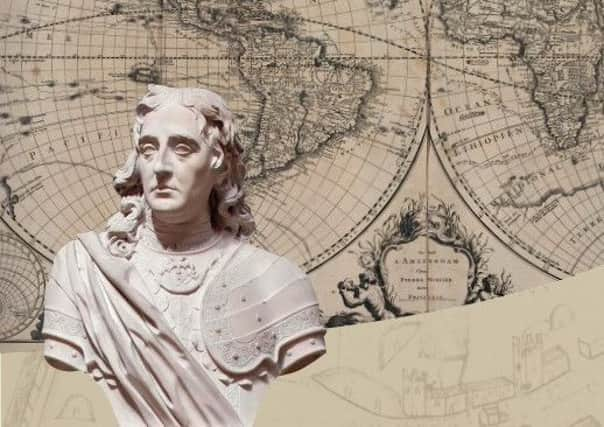East Antrim soldier's unique story in focus


Richard Kane, who was born in Dunane (now Rathcoole) in December 1662, grew up in Carrickfergus, where his father and uncle were joint sheriffs of the town.
Richard enlisted in the army of William of Orange, playing an important role in the Williamite Wars, including the Siege of Londonderry in 1688.
Advertisement
Advertisement
Service around the globe followed and while on route to Minorca in 1712 to become Lieutenant-Governor of the then British-ruled island of Minorca he was received at the Palace of Versailles, by Louis XIV.
He gave Kane a beautifully detailed atlas ‘of the Terrestrial and Aquatic Globe’ as a gift.
The visually stunning Kane Atlas was purchased in 2001 and became a star attraction for Carrickfergus Museum when it opened in 2004. Following extensive conservation, the maps can now be displayed for the first time.
The exhibition, MAPPING THE WORLD: Exploring the importance of Richard Kane and his Atlas, opens on Saturday 5 November and runs until Saturday 14 January 2017.
Advertisement
Advertisement
It is being launched on Tuesday 8 November, opened by the Deputy Mayor of Mid and East Antrim Borough, Alderman William McNeilly.
Anyone attending the free launch event which includes a talk by Dr Ron Bishop, Richard Kane: Forgotten Son of Carrickfergus? on Tuesday 8 November, 7pm should register by phone to Carrickfergus Museum on 028 9335 8241 or email [email protected]
Mr. McNeilly added: “Richard Kane, ‘The Good Governor’ of Minorca is remembered today in Carrickfergus through the naming of Minorca Place in Irish Quarter.”
“Queen Anne appointed Colonel Kane to the position of Lieutenant-Governor of Minorca in 1712, where he became known as the ‘Good Governor’ by opening new roads and introducing new breeds of cattle, poultry and game.”
Advertisement
Advertisement
“He died there and is commemorated in the road he had constructed, named Camino De Kane and in a memorial erected by a grateful population, in the 1970s.”
Following extensive conservation funded by the Northern Ireland Museums Council, these stunning and beautiful maps can now be displayed individually for the first time.
As Kane’s atlas was created by famous cartographer Nicolas Sanson for the French monarch, the exhibition allows the opportunity to explore cartography by making extensive use of antique maps of Carrickfergus, starting with the oldest map of anywhere in Ulster, Kragfargvs Towne, 1560, right through to the first ordnance survey map of 1832.